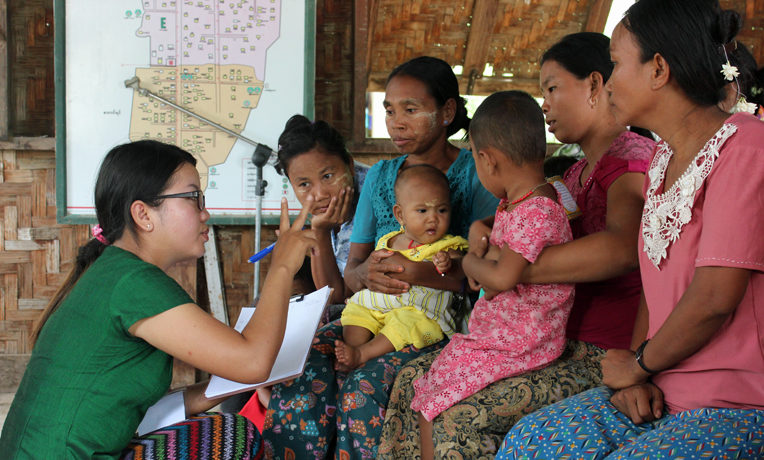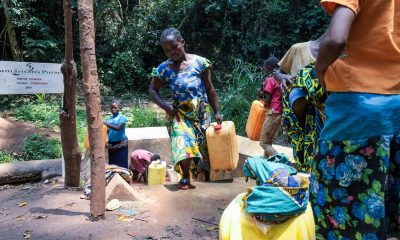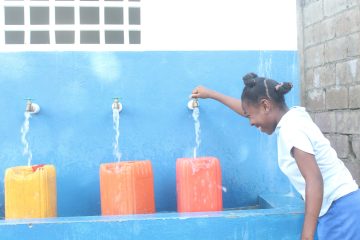Samaritan’s Purse offers health support to farming villages in rural Myanmar
Editor’s Note: Names have been changed throughout the article.
After a hygiene training, I asked one of the supervising midwives if I could interview her. Sitting in green plastic chairs in the middle of the health center, air-conditioned by open windows that welcomed in a morning breeze, I asked her name.
Yin Nwe Khin is 29 years old and was placed in this village to live and work by the Township Medical Officer six years ago. She provides maternal and child healthcare by visiting homes, diagnosing sick children, and administering vaccines and medication.
“We cannot provide iron-folic acid or latrines, so Samaritan’s Purse helps our work in the community,” she said. “Samaritan’s Purse gives these families what we cannot, and we really appreciate you.”
This village is one of 143 rural farming villages in Tada Oo township. During the harvest, most people can find work, but in the off-season, many families struggle to make ends meet. Some of their children are malnourished and past flooding has created sanitation problems.
In Myanmar, an estimated 52 percent of households don’t have latrines, forcing them to defecate in the fields. This attracts flies, causes diarrhea (especially among children), and at night, greatly increases the risk of snakebite. Samaritan’s Purse is implementing a project called “Healthy Start” here, which focuses on hygiene promotion and latrine construction.
Hygiene Training Provides Education
One of the mothers who attended the hygiene training, Ma Lah, is 38 years old and has four children at home. She has six people in her family and they find work doing whatever they can. If mangos are in season, they are hired to sell them and are paid by the day. A job for tomorrow is never guaranteed.
Right now, they are sometimes called to clean the fields and streets of the village, earning about $3 per day. When the village authority announced that Samaritan’s Purse was coming to offer hygiene education, Ma Lah remembered our staff members, Rem and Wai Min Chit, who came to her house to interview her and gather data for the baseline survey. She decided to attend the hygiene training to see them again.
At the training, she learned how diarrhea is caused, how to purify water, and how to effectively wash hands. Before, she did not know how to clean things well or why it is so important to do so.
“Now, I will practice water storage in my house and clean the cup our family uses for water,” Ma Lah said.
Her family was chosen as one of 10 latrine beneficiaries for this village. Because they couldn’t afford a latrine themselves, they had no choice but to use the fields. Now, they thank Samaritan’s Purse for providing them with the materials they need to build one. Ma Lah hopes that her children will grow up healthy and one day become teachers. She never received a good education, but she wants them to become well-educated so they can teach others.
After Ma Lah left, Yin Nwe Khin offered us a plate of sautéed green tea leaves and crunchy fried beans, a common hospitality practice in Myanmar. I sat with our staff and we ate some of the food, talking to Yin Nwe Khin a little longer.
Laughing, she exclaimed that often when she tries to gather the villagers for medicine distributions or vaccines, no one comes. But when Samaritan’s Purse arrives, the whole town shows up. She told us she thinks the villagers come because we invite them as friends. From the first day of the baseline survey, our staff has been building relationships with these families, and their hard work is beginning to pay off.
Please keep Samaritan’s Purse Myanmar in your prayers so that we can continue to expand projects and bless people with Christ’s love through the work we do.









